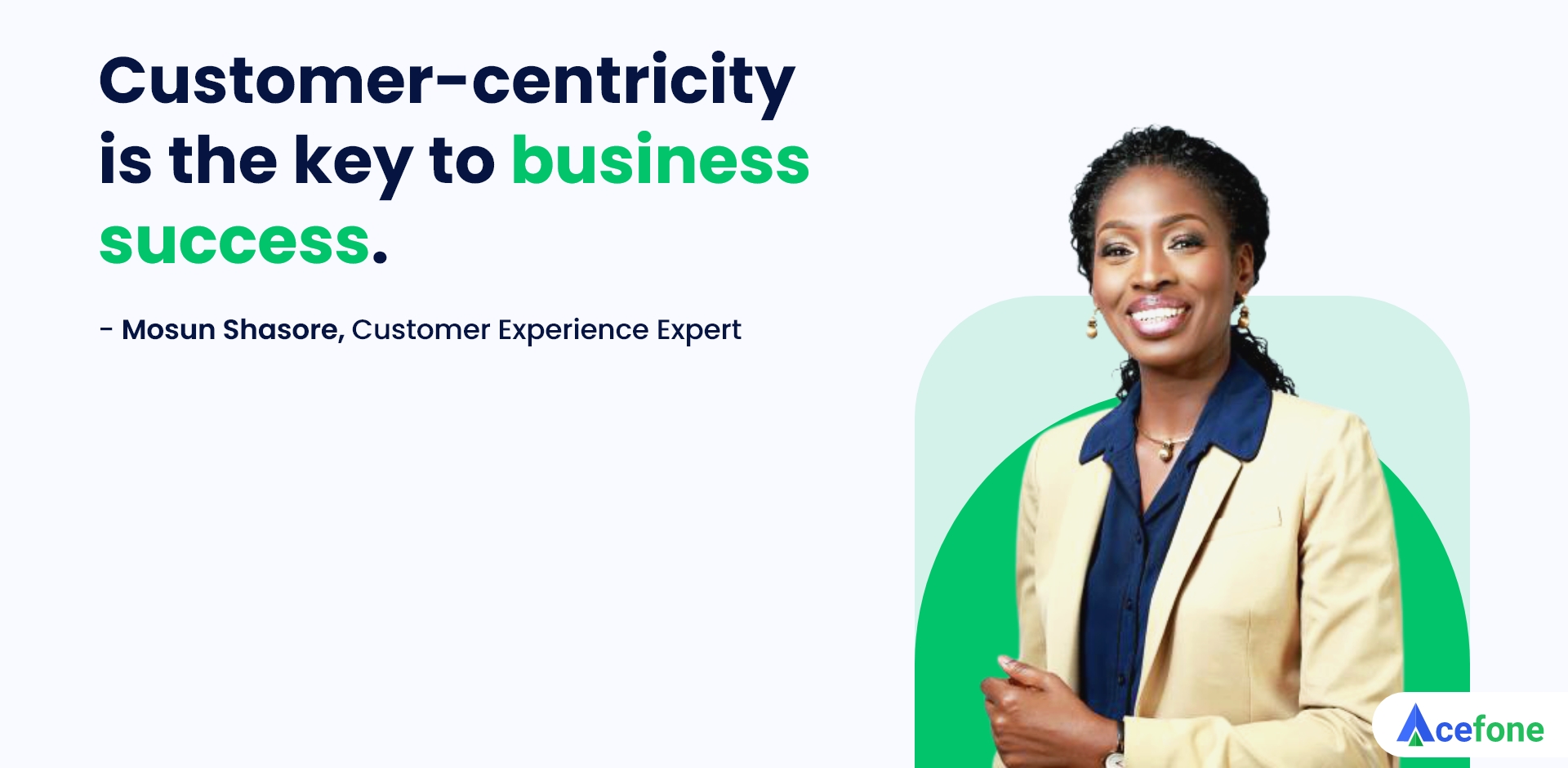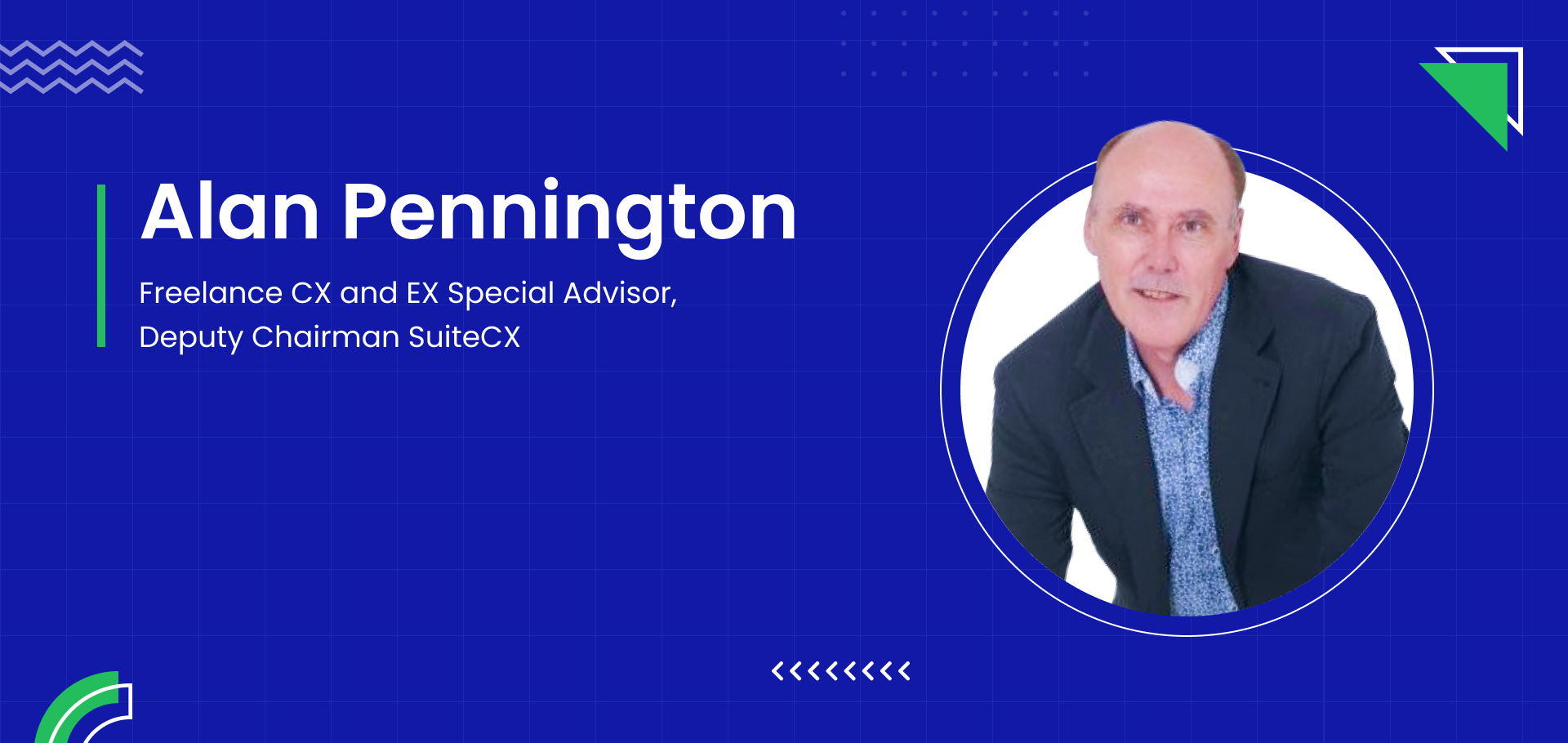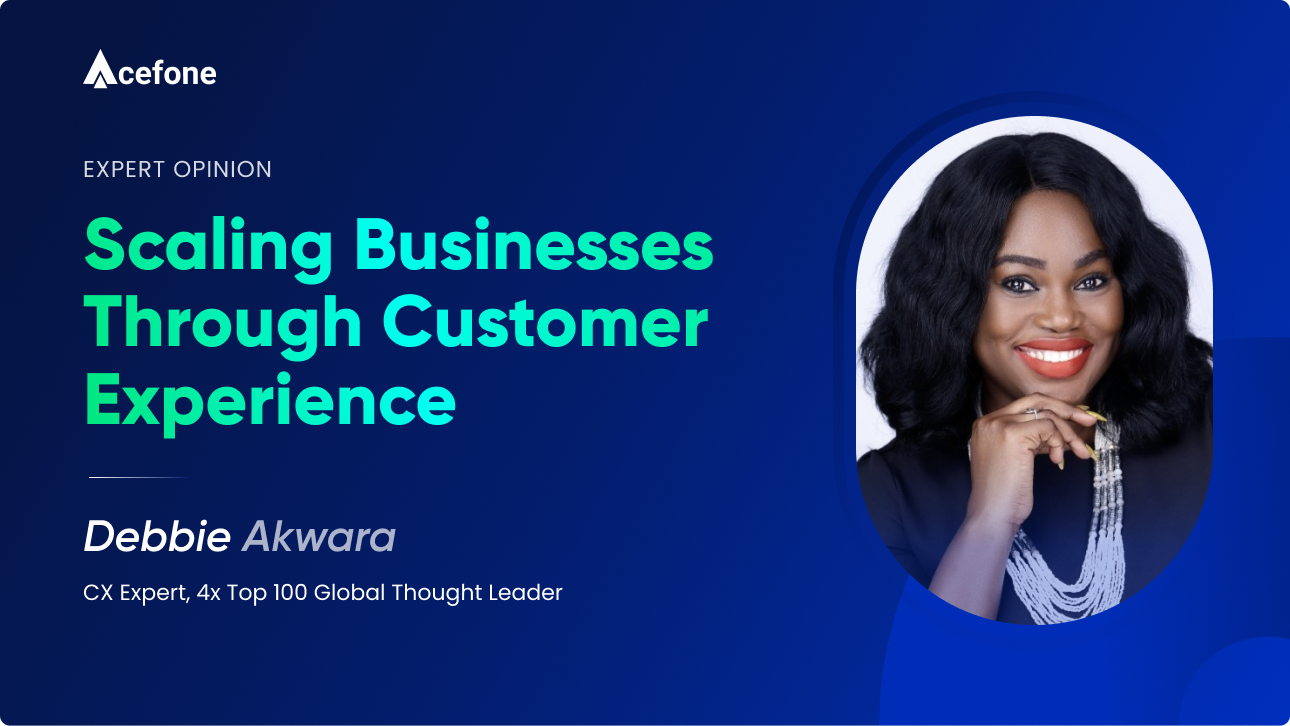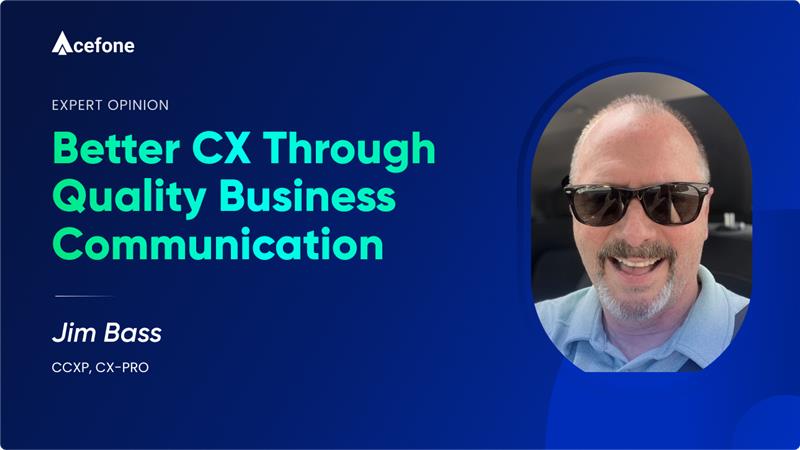Did you know Google searches for the term ‘customer experience’ have nearly tripled in the last decade?
Why won’t they be; customer-centricity is the key to business success in the modern landscape. With customer expectations evolving rapidly, you need to create a culture around the customer and their needs. Businesses that take steps to please customers in every encounter—from email drips to phone calls—only survive in such a mutable market.
The good news? Research conducted by Deloitte revealed that customer-centric companies are gaining 60% more profit than those that aren’t. This means you too can increase your revenue by pleasing customers—in a way nobody else can.
Customer experience is the summation of a brand’s impact on a customer’s mind during all the interactions throughout his journey. Right from the first search that helped them recognise their need to the final purchase, CX at each and every moment matters.
Mosun Shasore, who has been serving as a customer experience expert over the past 25+ years, is a certified customer experience professional (CCXP). She has created CX strategies for various multinational companies—Accenture, ARM Investment Managers, and Procter & Gamble. Enveloping her 25 years of experience, Mosun has shared some of her best customer service insights with us.
Read on to discover more about her exciting journey and get a plethora of expert tips and insights on customer experience.
1. How did you enter the field of CX? Was there a specific reason behind it?
Mosun: Yes, there were a couple of specific reasons. First, I have always felt strongly about the need to understand people. Second, empathy with internal business stakeholders and customers is crucial for mutually rewarding relationships and, ultimately, productivity.
However, the quote by Oprah Winfrey, “turn your wounds to wisdom”, best applies when describing my path to CX.
Earlier, I managed client relationships at an investment management firm, where I was responsible for growing the client base and deepening relationships.
Since clients expect efficiency in executing their financial plans, I had to often interact with my colleagues for support functions. As a result, there was friction on many occasions, which was an aspect of the job that I didn’t look forward to.
There were situations when both the front office and support staff had conflicts regarding the customer experience.
The front office believed that the support unit didn’t understand customer needs, while the latter thought their colleagues disregarded compliance issues. Client services even resented operations for the way they missed deadlines and for their ‘hard to decipher’ customer reporting formats.
Of course, the staff in both departments cared about customer needs. Still, they were putting pressure on one another without realising the impact of their arguments on the actual customer experience.
As time passed by, I observed that often, but not always, non-customer-facing units are one of the most significant obstacles that prevent a company from becoming customer-centric. This is because organisations focus more on the frontline service delivery teams and less on creating the required mindsets, behaviours and processes for the entire organisation.
There is a disconnect between strategy and vision required to deliver an enriching customer experience. This is usually caused by siloed business units and weak executive buy-ins.
To compound matters, client-facing people, like me, often blamed the awful client experience.
Instead of getting entangled in arguments at a micro level, I decided to take a wider approach to solve the problem.
I started looking into ways to help the organisation break down silos and improve the client experience.
My interests resulted in my move from client relationship management to an area called business support. After a while, I moved to strategy, where I could convene idea-generating sessions across functions and follow through with required actions to bring about impactful change.
I then joined Accenture and discovered that it wasn’t just my former place of work that needed to strengthen customer-centricity. Many businesses require a total transformation of CX practices.
Unfortunately, what one often finds is that operational constraints dilute a well-intentioned strategy (whether real or perceived) as well as a loss of focus over time, resulting in little more than lip-service being paid to the concept of customer-centricity.
All of it happened in the ‘90s and early 2000s, before CX, as a discipline, gained the clear definition it has today. Fast forward about ten years down the line, circa 2016, I came across the acronym ‘CCXP’ in an email that I had received from a fellow strategy person, and the rest is history.
2. After working 25+ years, what do you feel is a common mistake businesses make while delivering customer support?
Mosun: Ensuring that customers have a memorable experience with a brand is everybody’s job. However, I have seen businesses with the mindset that supporting and serving the customer is the job of a single department.
Placing the customer at the center of the decision-making process requires similar thoughts and culture in an organisation. Given that values drive behaviours and culture, managers and executives should actively and continuously entrench the organisation’s values in ways that go above-average commitment to deliver satisfaction.
3. You have written a book, Serve Them Right. What was the inspiration behind it?
Mouson: The thought emerged years ago when I was in the queue to report a lost sim card at a service location of a telecommunications service provider. Several minutes ticked by as the frontline staff occupied themselves with tasks, completely ignoring the waiting customers.
After a while, a senior officer who noticed that I had not been attended to, loudly remarked, “What is it that you actually want?”
A similar experience occurred at a bank a few days later. While speaking to my so-called ‘relationship manager’, we were constantly interrupted by her colleague who came by with some doubts.
Again, it came across as my matter being accorded lower priority. Even when I avoided physical interaction and preferred resolving the issue over the telephone, I found staff asking me to repeat my problem each time I was transferred to another department. The justification for that was usually, “oh but madam, I was not the one who attended to you initially” or “I was not around at that time, I just resumed”.
There are much worse examples, from the inability of airline ground staff to address challenges related to flight delays to pharmacists not wanting to attend to simple enquiries on pricing and pointing me to the cashier.
I find it absurd that it has become standard practice to ask one’s friends for their contacts in an organisation where you seek to procure a product or pay for a service to be assured of satisfactory treatment.
The truth is, delivering a superior customer experience is far from easy.
If it were so simple, we would find more business owners and senior executives demonstrating exactly how customers should be treated. Instead, we see frontline operations being left to people with little experience in the business world. They are unaware of the repercussions of weak service, so we are affronted by customer service officials saying ‘good morning!’ as loud as they possibly can while asking obnoxious questions such as, “how was your night?”
My work as a business adviser involves helping my clients with business strategy development and delivering workshops designed to support strategy execution.
My firm has helped clients win customer service awards with our bespoke workshops, and as such, the intention is to make the same content available to more people. Therefore, Serve Them Right is a compilation of workshop notes and exercises that I have delivered over the years.
The purpose of Serve Them Right is to serve as a handbook for staff at the frontline and a guide for training managers and heads of customer experience departments. The scope of this book, therefore, primarily covers customer service practices at the frontline.
I believe that service delivery is not only of importance to business stakeholders. Our customer experience standard is of strategic significance for the collective wealth of the people of any nation, as business partnerships are sought from various parts of the world.
When it comes to helping businesses make progress on their customer experience maturity, there is still much work to be done by CX professionals in the world. Exceptional service begins with the enthusiasm from each individual, across all ranks. Without purpose and confidence, service will always be below expectation.
4. You have worked as a Contributor at the Nigerian Economic Summit Group (NESG) HCDC. Kindly throw some light on what your role was all about and your experience.
Mosun: The Nigerian Economic Summit Group runs several policy commissions, including financial services, infrastructure and Human Capital Development Policy Commission (HCDPC).
The purpose is to identify areas where policy changes are required so that members can recommend ways to achieve progress and advocate for change. Work is still ongoing; however, there is no doubt that the key to success is to align our education system with the nation’s core strengths and allocate financial resources that support our strengths.
For instance, given the trends, we can see our success in drama, music, animation, technology and entertainment, and this is where we should focus.
5. Could you share some challenges that you have faced in the industry?
Mosun: Frankly, there are a few challenges that I’ve seen; however, one fundamental challenge is the C-suite disconnect from the customer experience function.
When I start discussions with CEOs around CX, my team and I are often referred to whatever they view as the most appropriate department. After that, CEOs partially or entirely disappear from the scene. This is a recipe for putting customer experience consistency at risk.
Having the CEO and other C-suite leaders articulate what customer-centricity means and what it looks like in practice is critical to embedding customer-centric behaviour in an organisation. And so, one crucial area C-suite leaders should pay attention to is creating a customer-centric culture and here are three things to focus on:
-
Recruiting the right people
Achieving behavioural change is costly, so the starting point here is to be clear on core values and behaviours that demonstrate them, followed by recruiting people that fit in. While ensuring you have the right people in the business, be prepared to lose people also. This is easier said than done but worth the painstaking effort.
-
Creating a structure that supports cross-functional collaboration
CEOs should make the customer experience an active priority by creating a layout where the Chief Customer Officer is a direct report. Giving the CXO a seat at the management table will ensure that senior people in non-customer facing roles are aware of the commitment to customer priorities.
-
CX measurement and progress tracking at the executive level
The essential purpose of measurement is to interpret the implications and take action that drives a culture of accountability and continuous improvement. CX KPIs are leading indicators of financial performance results and, as such, just as necessary.
In simpler terms, customer experience is a leadership issue.
6. Tell us about some of your achievements and awards in the customer experience domain.
Mosun: I run Quramo Advisory, a trusted brand for customer experience, staff development and capacity building in the asset management sector. Over the last 24 months, we have facilitated customer experience workshops for all the frontline staff at 5 of the top 10 pension fund managers that collectively control more than 40% of the market.
7. Is there any advice that you would give to people who are planning to start a business?
Mosun: For me, the most important thing is to nurture and nourish your mind. One thing is sure in entrepreneurship, there will be challenges of all kinds, and many people get overwhelmed, panic or even give up at the first sign of difficulty.
One’s mental preparedness is, therefore, significant at the beginning and along the entire journey. Therefore, my message to all entrepreneurs is to develop the disposition of persistence and perseverance consciously.
You’ll face great difficulty when a key initiative fails. The ability to admit failure and start over again is crucial. It requires positive thinking, determination, persistence, and an entrepreneur’s faith in her ability to succeed.
8. Lastly, are you working on a new book? If yes, can you please tell us a little about it?
Mosun: I intend to start working on the revised edition of Serve Them Right later this year. So thoughts around a new book are still evolving. However, I am equally excited about my podcast on customer experience, which should take off in the third quarter of the year.
Wrapping up
The insights highlighted in the interview can surely help you transform your business’s customer experience approach.
Enhance your customer service by introducing the latest cloud communication solutions to your business. Call 1888-859-0450 or email us at [email protected] to get in touch with our experts today!














